Stonewall’s list of the top 100 LGBTQ-inclusive employers only includes two food and drink companies. How can it be sorted…
Forget Pride, this was shameful. Food and drink employ at least two million people across an industry worth £110bn, but against 17 law firms, 14 educational bodies and 10 finance corporations, only Asda and the Co-op ranked among the top 100 LGBTQ-inclusive employers in a recent survey.
It’s a damning indictment of a sector doing precious little to prioritise the rights and treatment of its LGBTQ staff. Or is it?
To begin with, the top 100 list compiled by Stonewall relies entirely on voluntary participation. Rather than testing the LGBTQ mettle of all companies in the UK, it calls for submissions from companies keen to be included, mapping out their initiatives, training schemes and events.
This meant, when it launched in 2005, only 93 companies even took part, limiting the index to a top 50, with seven companies refusing to be highlighted publicly for their work on inclusivity. This is something that frankly sounds bizarre looking back from 2017.
“Doesn’t it?” says Stephen Frost, an expert diversity advisor who helped set up the first index, and has advised the UK government and the White House (under its previous tenant) on LGBTQ inclusion. “And that included pretty big household names. But only three years later we had hundreds of organisations out and proud and fighting to get into this index.”
Selling to the LGBTQ community
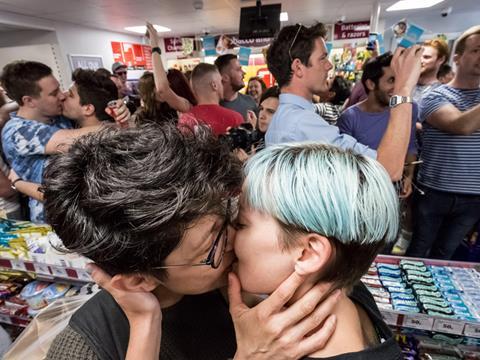
In August 2016 the aisles of an East London branch of Sainsbury’s were overrun with kissing LGBTQ activists and dancing drag queens. They’d gathered in protest at the expulsion of two gay men by its store manager, accused of “touching inappropriately”. The Big Gay Kiss event, which captured the headlines, wasn’t the first of its kind either.
When two kissing women were called “disgusting” by a security guard at the retailer’s Brighton branch, hundreds of outraged protestors turned up too. Sainsbury’s quickly apologised and condemned the behaviour. But the damage was done.
It isn’t limited to retailers either. Who can forget the infamous Belfast bakery case in 2016, where its Christian owners were found to be discriminatory after refusing to write a slogan supporting gay marriage on one of their cakes.
The fact is that food and drink businesses that upset the 6% of the population that are LGBTQ could pay a heavy price, warns Vicky Hayden of Stonewall. “There’s a really clear business case to engage with LGBTQ customers,” she says.
“Levels of spending in the LGBTQ community are typically higher, they really consider where they put their money and spend it with organisations that support their community and identity too.”
“You can’t be the nation’s grocer if you’re going to inadvertently pee off 6% of the population, who are also quite an influential lobby group,” adds diversity adviser Stephen Frost.
As part of basic training for staff, Stonewall recommends clear guidelines on what constitutes homophobic or transphobic comments, and obligations toward the public under the Equality Act. Participation in local Pride events and tailored products can also boost inclusion.
“From a commercial perspective if you’re not in tune with your area of sales, for example, or who you are trying to sell your product and services to, you’ll close off businesses to a section of the community that is a market,” says Sharon Pegg at the Co-op.
“It’s your brand. People are much more switched on to whether brands are ethical these days, and they’ll vote with their feet if they don’t feel we’re in tune.”
In fact, more than 430 organisations tussled to make the top 100 in 2017. And with only the top 100 publicly named, there will undoubtedly be some grocers and manufacturers further down the list working hard to improve their score. But there is still a dearth of food and drink companies taking part at all. Why?
Verbal bullying
For some, other lists mapping out LGBTQ inclusivity hold more of a pull. Take Diageo, which didn’t participate in the most recent Stonewall index but did top a list by the US-based Human Rights Campaign Foundation and has been lauded for its work in LGBTQ inclusivity. “We view diversity as one of the key enablers that helps our business grow,” insists Andrew Porter, recruitment transformation lead and European lead of the Rainbow (LGBTQ) network at the drinks giant. Its LGBTQ network now spans London, Brussels, Amsterdam and Budapest (with plans for branches in Madrid and Scotland in the coming months) and it marked London Pride with a series of talks touching on LGBTQ issues at its HQ.
But for Vicky Hayden, Stonewall’s head of private sector membership programmes, “there is still a perception that customer-facing businesses are naturally inclusive and friendly places to be, so the sector has never put itself to the test. It all starts with your staff and nobody has measured that before. The other factor is perhaps prioritising the feelings of customers, and a level of fear that if they talk about these topics externally they may isolate some of their customer base.”
As a result, they could isolate up to 6% of their workforce instead. Already over half of graduates hide their sexuality or gender identity at work. “They’re out at university and go back in the closet at work, which is bizarre in 2017,” says Frost. “People hide themselves to fit in, or get ahead. If a promotion is dependent on talking about football or going on that golf trip you still have people not being themselves.”
’People are out at university and go back in the closet at work, which is
bizarre in 2017’
Often discrimination isn’t flagrant or even conscious. “For example, an invite to a work event that says ‘bring your wife/husband’ and if you turn up with someone of the same sex it’s a bit awkward,” says Frost. “Nobody is being malicious, they just weren’t thinking.”
Sometimes, though, they are. In fact, one in five lesbian, gay or bisexual employees have been verbally bullied, says Stonewall, while 6% of trans people were physically assaulted at work, and nearly half (42%) are not living permanently in their preferred gender role for fear it could cost them their job.
Among a rising number of cases brought by LGBTQ clients are cases of verbal bullying and even objects thrown at employees’ heads, says Michelle Landy of Backhouse Solicitors. “A lot of people who bring claims don’t feel they have anyone else to talk to.”
Food and drink is “way below average” in tackling this, according to Frost. “Partly it’s an issue where deadlines are tight, margins are small and the pressure is on, and all that adds up to perhaps less wriggle room, or less tolerance than you might think at first. We know that from neuroscience when people are under pressure they’re more liable to fall back on unconscious bias.”
Added to that are inherent challenges that face retailers in educating staff about their rights and obligations full stop. “Having a really dispersed workforce is a natural challenge in retail and fmcg,”says Hayden. “People are working part-time or on casual contracts and so don’t have a work email and the opportunity to sit behind a desk and do e-learning. That can be a real challenge in ensuring that initiatives are widespread.”
But there are easy first steps a business can take. Yes, “getting rid of any homophobic or laddish behaviours preventing people being themselves” says Frost, but also tweaking job descriptions, interview notes and advertisements to be more gender neutral. And tracking how many LGBTQ staff are in your organisation over time. “Recording that data is really important, as if you have the data to hold the mirror up to, it helps making those conscious behaviour changes.”
Stonewall encourages companies to introduce training that covers legislation, such as the Equality Act, and their obligations on their relationships with colleagues and customers, adds Hayden. “We encourage them to highlight what constitutes homophobia, biphobia and transphobia and use training scenarios and case studies to highlight those. And signpost ways to report it.”
Community outreach
It’s a journey the Co-op (13th on the 2017 Stonewall index) started 12 years ago when some within the business felt their voice wasn’t being heard. Now LGBTQ staff are represented and supported via its Respect network (see box, left) with LGBTQ events in local communities, and products and services tailored for Pride celebrations. “We’ve had employees where family members have come out or are going on a different journey in their life, and we’ve been giving that support by providing information, outreaching to members of the family and connecting them with experts in those fields,” says diversity manager Sharon Pegg. As well as introducing the first rainbow-coloured hearse to its funeralcare business in August, the retailer has sponsored local Pride events, and was even invited to parliament to speak about equal marriage.
Asda (25th) has also received plaudits. The supermarket has “done some great work on training, making sure equality and diversity are part of everyone’s role and that everyone has the opportunity to explore and understand a bit more,” says Hayden. “That’s really difficult to do in the retail space.”
In 2014, research by Asda found that the 1% of its workforce that identified as trans was ‘the least engaged segment’ across the business. It held listening groups and introduced a new policy to better support them. As a result, ‘well over 1%’ now say they identify as trans, engagement doubled in 12 months, and a new transgender group was set up.
How the Co-op showed its LGBTQ staff some ‘Respect’
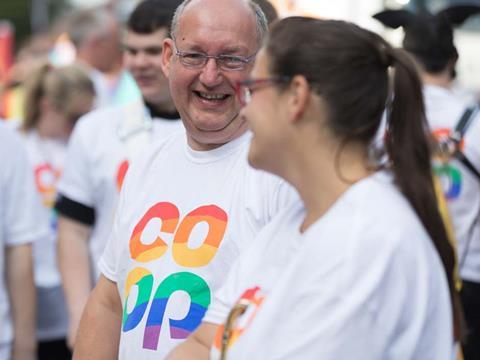
Set up in 2004, when LGBTQ rights were totally left field for HR execs at its rivals, the Co-op’s Respect network now has 1,100 members, 12k followers on Twitter and is held up as best practice among grocers in ensuring their LGBTQ staff have a voice.
Led entirely by its members, the network influences everything from policy to products and services to promote inclusion and diversity across the business.
“It’s there as a support network for colleagues struggling with anything they might be going through but also to show positive things about LGBTQ life and culture, and celebrate the different facets of that,” says one of its chairs Amelia Cargo.
The network organises internal film nights “to show a range of LGBTQ experiences” produces information leaflets, offers commercial teams guidance on products to offer in stores to complement local Pride events, and also reaches out to management to “showcase senior role models” and offer “reverse mentoring.”
The network was instrumental too in introducing a transgender policy to the retailer a couple of years ago. “It was key in getting feedback from trans colleagues and making sure it was as representative as possible,” adds Cargo, with the final policy including guidance on who to go to in the business to talk to, facilities, such as toilets, and the use of personal data. And “we’re happy to share learnings with other businesses,” adds Cargo. “With this sort of thing we leave competition at the door.”
All this work, publicised via the likes of Stonewall, will be registering in the minds of young food and drink talent as they look for jobs, with ethical companies far more popular among younger workers, says TLT employment lawyer Jonathan Rennie. “A diverse workforce can also provide a broader range of experiences that facilitate better learning, something that many younger workers crave from their employer.”
In fact, the Co-op’s own track record on inclusivity was one of the contributory factors to Amelia Cargo, chair of its Respect network, joining the business. She says it’s the same for many others.
There’s a solid business case behind this, says Frost. In a sector under pressure “it’s even more important to efficiently use the resources you’ve got and two seconds of pause, a little more conscious thought, would mean you can include people and get a step change in inclusion and performance of people for free”.
“Why wouldn’t you want to get the extra free resource of a more empowered, liberated people to do what they need to do?”
And, crucially, be who they need to be.







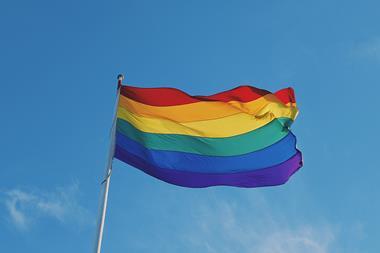
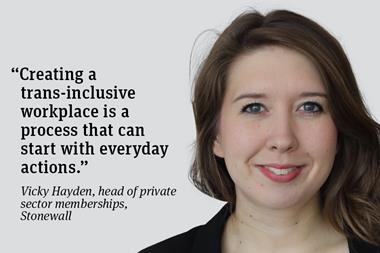
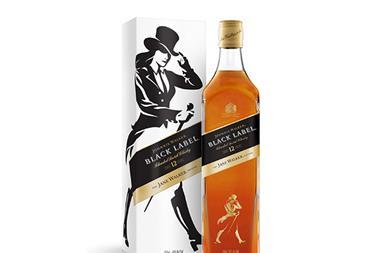
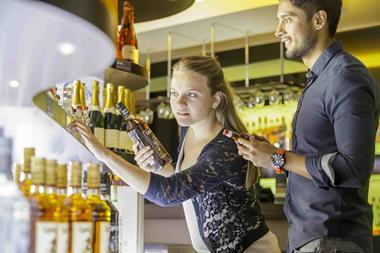

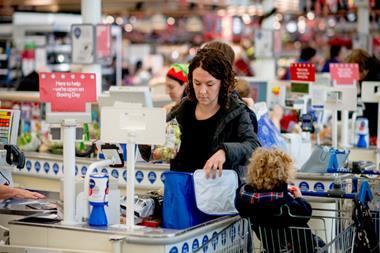






No comments yet